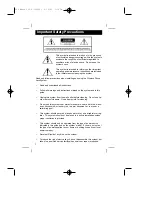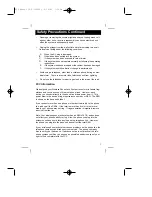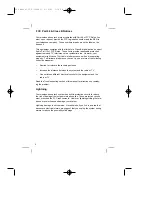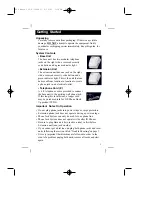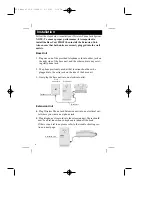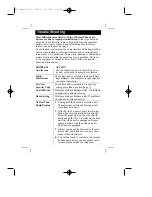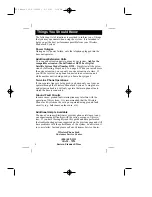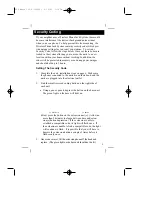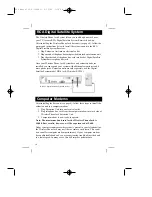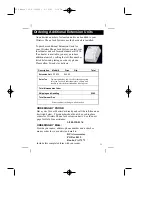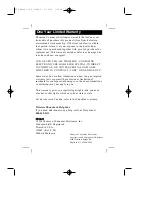
3
•
Opening or removing the covers might expose you to dangerous volt-
ages or other risks. Incorrect reassembly can cause electric shock
when the system is subsequently used.
•
Unplug the system from the wall outlet and refer servicing to a quali-
fied service facility under the following conditions:
A.
When the AC plug is damaged.
B.
If liquid has been spilled into the system.
C.
If the system has been exposed to rain or water.
D.
If the system does not operate normally by following the operating
i n s t r u c t i o n s .
E.
If the system has been dropped or the cabinet has been damaged.
F.
If the system exhibits a distinct change in performance.
•
Avoid using a telephone, other than a cordless phone, during an elec-
trical storm. There is a remote risk of electric shock from lightning.
•
Do not use the telephone to report a gas leak in the area of the leak.
FCC Information
We designed your Wireless Phone Jack System to conform to federal reg-
ulations and you can connect it to most phone lines. However, each
device you connect directly to the phone line draws power from it. This
power draw is the device’s ringer equivalence number, or REN. The REN
is shown on the base unit’s label.
If you connect more than one phone or other device directly to the phone
line, add up all the RENs. If the total is more than five (or three in rural
areas), your phones may not ring. If ringer operation is impaired, remove
a device from the line.
Note: Your wireless phone jack system has an REN of 0.7B, and so does
not affect your phones ability to ring. Also, the phone you plug into the
extension unit does not place any load on the telephone line. However,
the phone you plug into the base unit does affect the total REN.
If your wireless phone jack system causes problems on the phone line, the
telephone company can disconnect your service. The phone company
tries to notify you in advance. If advance notice is not practical, the tele-
phone company notifies you as soon as possible and advises you of your
right to file a complaint with the FCC.
Safety Precautions Continued
926 Manual V2.0(1J9643) 6/10/99 1:39 PM Page 3


